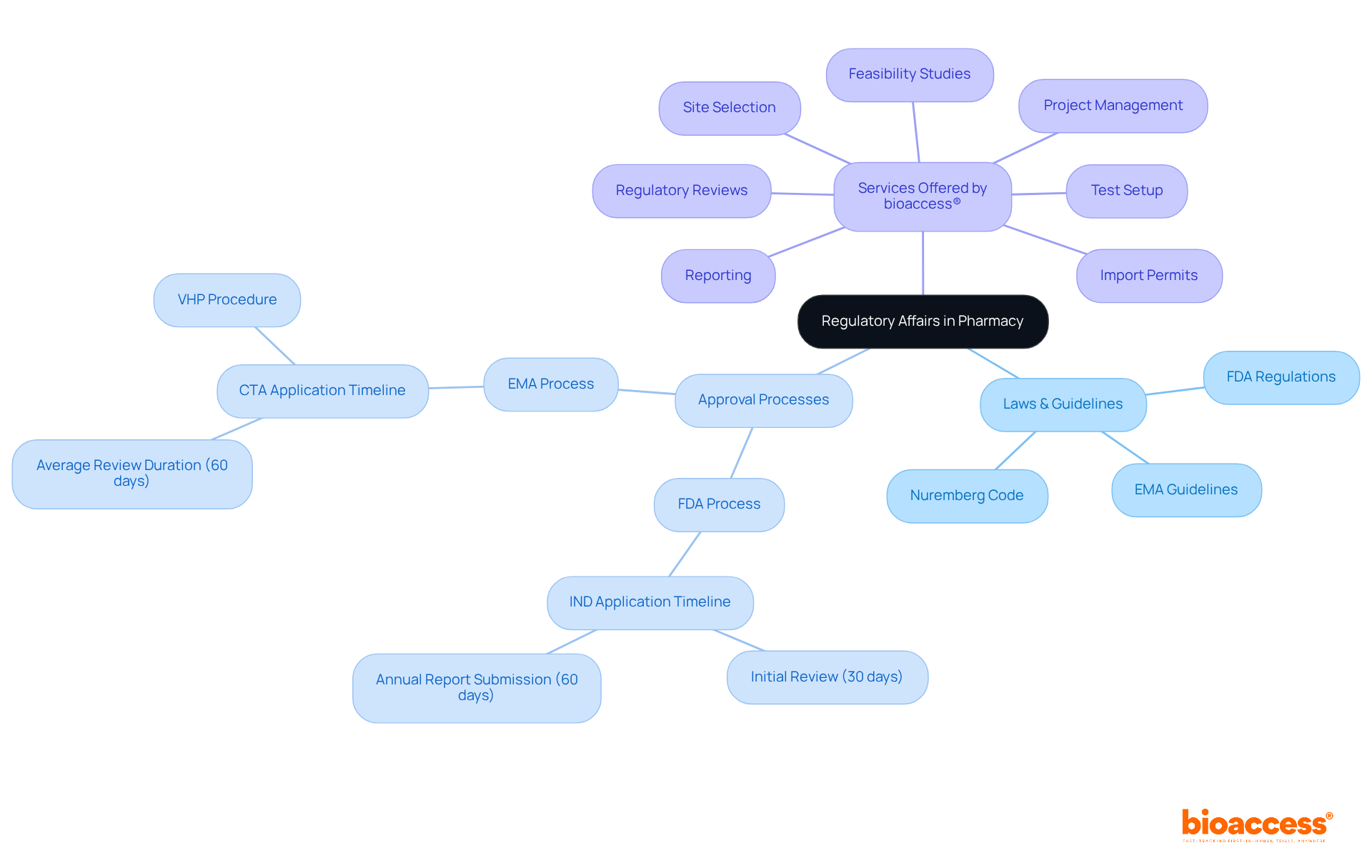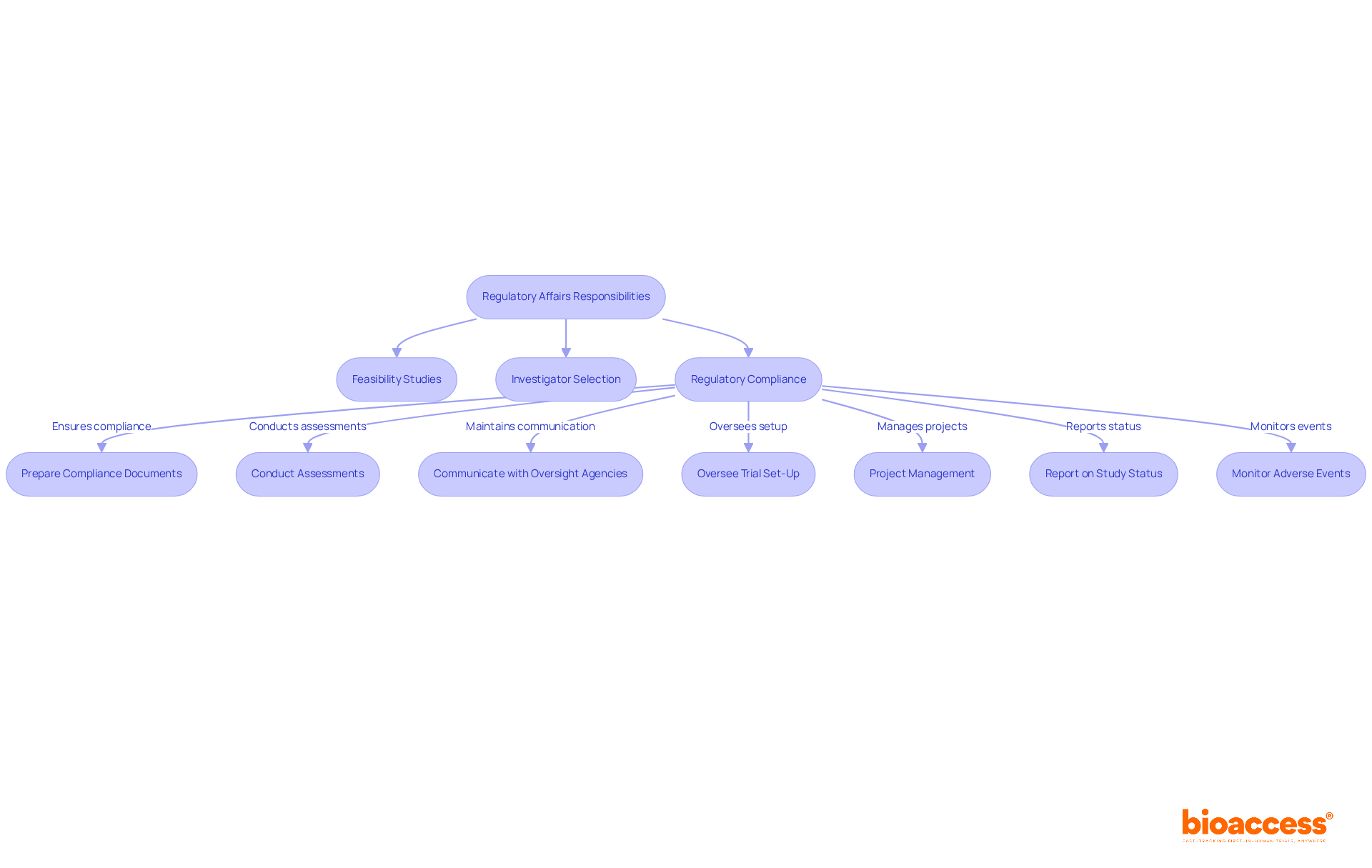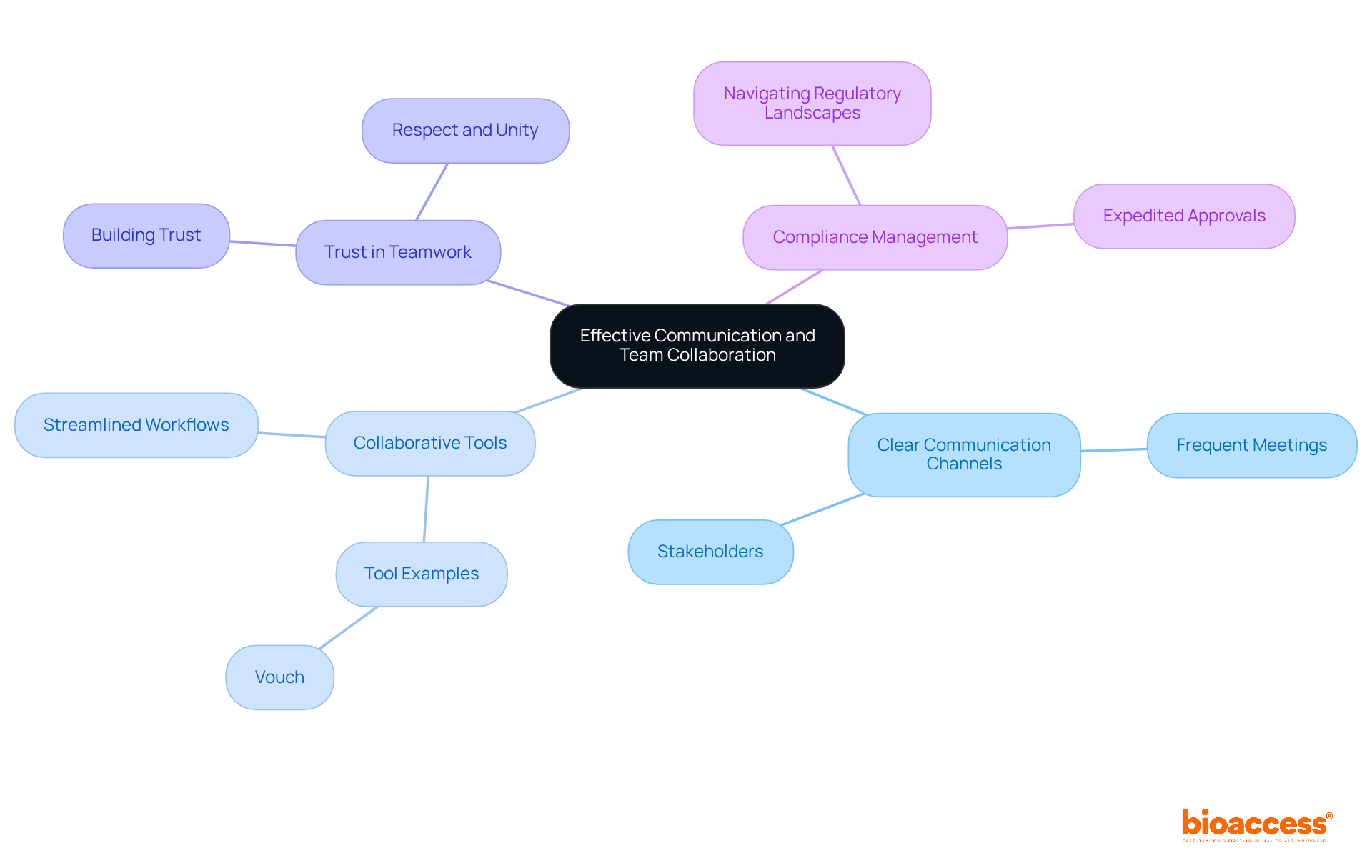


This article delves into the essential practices for mastering regulatory affairs within the pharmacy sector. It underscores the critical importance of comprehending legal frameworks, compliance processes, and effective communication strategies. Professionals in this domain must possess an extensive understanding of regulations and commit to ongoing education. Such dedication is vital for navigating challenges, streamlining approval processes, and fostering innovation in drug development.
Navigating the intricate landscape of regulatory affairs in pharmacy is essential for ensuring that pharmaceutical products meet stringent safety and efficacy standards. As the industry evolves, understanding the core principles and practices that govern this field has become increasingly vital for professionals aiming to accelerate drug development and market entry.
With the rapid pace of regulatory changes and the complexities involved, specialists must effectively manage compliance while fostering innovation and mitigating risks. This article delves into key practices for success in regulatory affairs, offering insights that empower professionals to thrive in this challenging environment.
The field of regulatory affairs in pharmacy includes the laws, regulations, and guidelines that govern the development, approval, and marketing of pharmaceutical products. A comprehensive understanding of the frameworks established by agencies such as the FDA in the U.S. and the EMA in Europe is essential. These agencies set stringent safety and efficacy standards that products must meet before market entry. For instance, the FDA generally assesses initial investigational new drug (IND) applications within 30 days, whereas the EMA's average duration for national research application submissions (CTAs) is approximately 60 days, along with additional time for any inquiries from health authorities.
Knowledge of the medication approval process, which includes preclinical and clinical trial necessities, is crucial for professionals working in regulatory affairs in pharmacy. This foundational knowledge allows them to anticipate potential challenges and streamline the approval process, ultimately accelerating the time-to-market for new therapies. Recent updates in 2025 emphasize the need for ongoing education in regulatory affairs in pharmacy, as evolving guidelines can significantly impact pharmaceutical development strategies. Understanding regulatory affairs in pharmacy not only enhances compliance but also fosters innovation in drug development, ensuring that new therapies can reach patients promptly.
At bioaccess®, we focus on expediting studies for Medtech, Biopharma, and Radiopharma startups by offering extensive study management services. Our offerings include:
By linking cutting-edge startups with leading clinical research locations, we guarantee a more seamless route to approval and quicker study initiation.

Regulatory affairs in pharmacy specialists play a pivotal role in the pharmaceutical industry, ensuring that products comply with all pertinent regulations and standards. Their responsibilities encompass a comprehensive process for promoting medical device evaluations, which includes:
These specialists prepare and submit compliance documents, conduct thorough assessments, and maintain continuous communication with oversight agencies such as INVIMA and ethics committees. Furthermore, they oversee trial set-up, project management, and reporting on study status and adverse events. By adeptly managing these tasks, compliance affairs specialists mitigate risks associated with non-adherence, which can lead to costly delays and penalties. Their expertise in regulatory affairs in pharmacy is indispensable for navigating the complexities of the compliance landscape, ensuring that products are developed and marketed in accordance with legal requirements. Notably, figures like Ana Criado, Director of Compliance Affairs at bioaccess, exemplify this role, bringing a wealth of experience in biomedical engineering and consulting, thereby underscoring the necessity of skilled specialists in this domain.

Executing strategic planning and adherence practices requires the development of a comprehensive governance strategy that aligns with the organization's goals. This process involves conducting a thorough risk evaluation to identify potential regulatory challenges and formulating effective mitigation strategies. As Michael Barr noted, "key risks and oversight challenges" are critical factors in today's environment, underscoring the necessity for diligence in adherence practices.
Consistent training and updates for personnel regarding legal changes are vital for maintaining standards, especially given the mandatory nature of consumer protection laws for all financial entities. Moreover, establishing a robust documentation system ensures that all compliance submissions are accurate and timely. This is exemplified by the recent filing period for HMDA data, which commenced on January 1, 2025, with submissions due by March 3, 2025.
By fostering an environment of adherence and strategic insight, organizations can navigate the legal framework more effectively, reducing the likelihood of delays and enhancing their competitive advantage. However, it is essential to recognize common pitfalls in adhering to guidelines, such as inadequate training or failure to adapt to legal changes, which can lead to significant setbacks.
Integrating these elements into the compliance strategy will better equip organizations to confront the challenges associated with oversight matters.

Encouraging efficient communication and team cooperation is crucial for the effective management of compliance matters, particularly in the context of advancing medical device trials. This requires establishing clear channels of communication among team members, compliance experts, and external stakeholders, such as clinical researchers and oversight agencies. Frequent meetings and updates ensure that everyone remains aligned on project timelines, legal requirements, and potential challenges, especially when navigating the complexities of site feasibility, investigator selection, and review processes.
Furthermore, employing collaborative tools and platforms, such as Vouch, significantly enhances information sharing and streamlines workflows, which is essential for expedited site activation and compliance in regions like LATAM, the Balkans, and Australia. By fostering an environment of transparent communication and collaboration, organizations can refine their compliance processes, leading to quicker approvals and successful product launches.
As Ken Blanchard aptly stated, 'Coming together is a beginning, staying together is progress, and working together is success.' Trust is fundamental in team collaboration, as it enhances productivity and cooperation. By acknowledging the collective strength that drives successful regulatory affairs in pharmacy, organizations can leverage effective teamwork to navigate the intricate regulatory landscapes and overcome challenges faced by medical device startups in clinical trials.

Mastering regulatory affairs in pharmacy is essential for ensuring that pharmaceutical products meet the necessary safety and efficacy standards before reaching the market. This field not only safeguards public health but also fosters innovation in drug development, enabling timely access to new therapies. A thorough understanding of regulatory frameworks, such as those established by the FDA and EMA, is crucial for professionals navigating this complex landscape.
The article highlights several key practices that contribute to success in regulatory affairs, including:
By implementing these strategies, organizations can mitigate risks, streamline approval processes, and enhance collaboration among teams and external stakeholders, ultimately leading to quicker approvals and successful product launches.
The significance of mastering regulatory affairs cannot be overstated. As the pharmaceutical landscape continues to evolve, staying informed about current trends and best practices is vital for professionals in this field. Emphasizing the importance of teamwork and open communication will further strengthen regulatory processes, ensuring that organizations can effectively navigate the challenges of compliance and bring innovative solutions to market. Engaging in ongoing education and collaboration will empower regulatory affairs professionals to not only meet but exceed the expectations of an ever-changing industry.
What is the field of regulatory affairs in pharmacy?
Regulatory affairs in pharmacy encompasses the laws, regulations, and guidelines that govern the development, approval, and marketing of pharmaceutical products.
Why is understanding regulatory frameworks important?
A comprehensive understanding of regulatory frameworks established by agencies like the FDA in the U.S. and the EMA in Europe is essential to ensure that pharmaceutical products meet stringent safety and efficacy standards before market entry.
How long does the FDA take to assess initial investigational new drug (IND) applications?
The FDA generally assesses initial IND applications within 30 days.
What is the average duration for the EMA's national research application submissions (CTAs)?
The EMA's average duration for national research application submissions is approximately 60 days, plus additional time for inquiries from health authorities.
What knowledge is crucial for professionals in regulatory affairs?
Knowledge of the medication approval process, including preclinical and clinical trial necessities, is crucial for anticipating challenges and streamlining the approval process.
What recent updates emphasize the importance of education in regulatory affairs?
Updates in 2025 highlight the need for ongoing education in regulatory affairs, as evolving guidelines can significantly impact pharmaceutical development strategies.
How does understanding regulatory affairs benefit drug development?
Understanding regulatory affairs enhances compliance and fosters innovation in drug development, ensuring that new therapies reach patients promptly.
What services does bioaccess® provide for Medtech, Biopharma, and Radiopharma startups?
Bioaccess® offers services including feasibility studies, site selection, regulatory reviews, test setup, import permits, project management, and reporting to expedite studies and facilitate a quicker route to approval.